GARDENING WITH MINIMAL DISTURBANCE
Kitchen Garden
|March 2024
Gardening is about balance, says Huw Richards. This month he explains the underlying principles that inform his approach to gardening
-
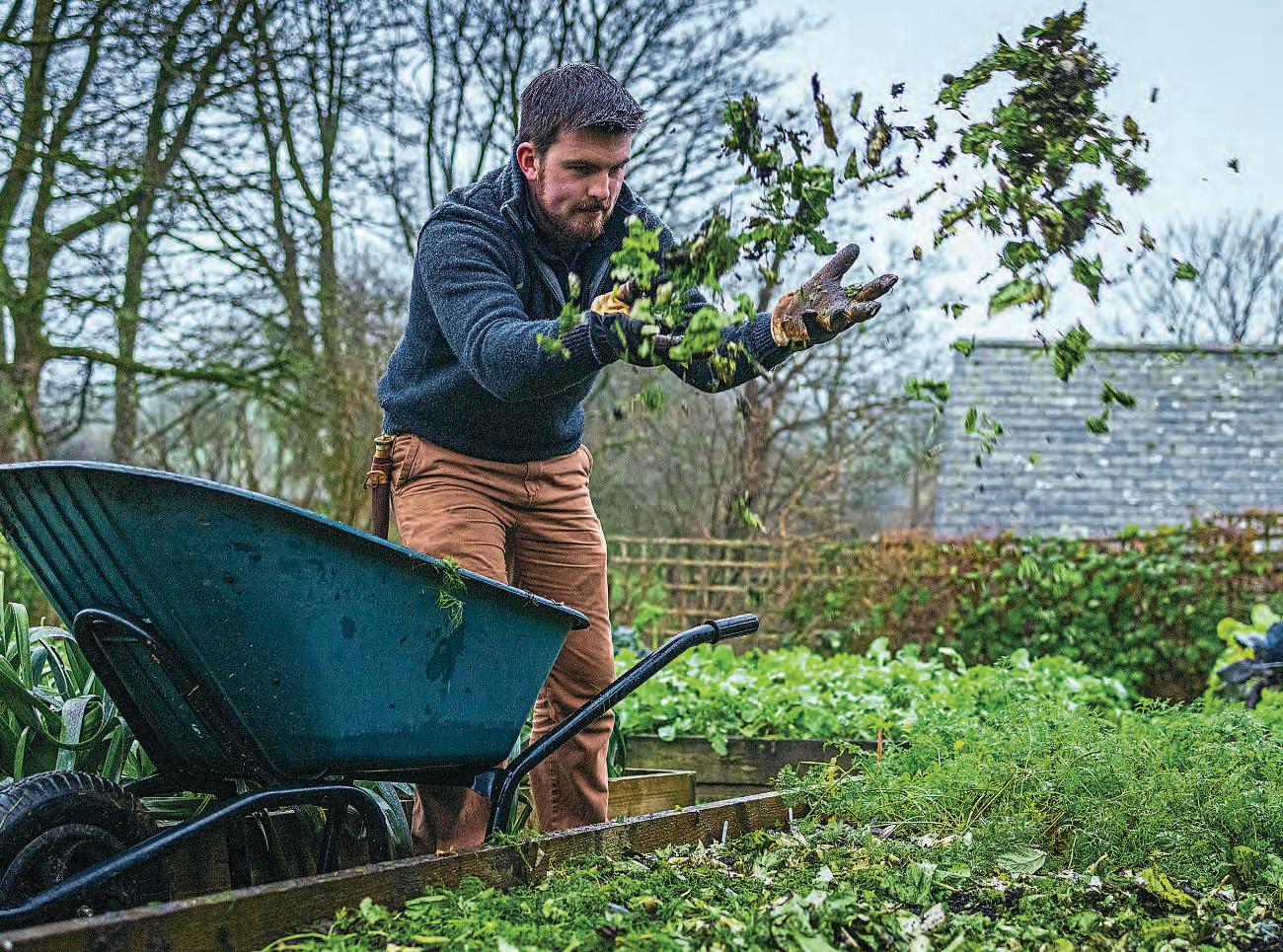
Permaculture is a design approach inspired by patterns and observations in nature to help us create resilient and productive gardens, farms and communities. The goal is to work with nature rather than against it, and permaculture would be the most accurate description of how I approach growing my own food.
One of the most important happenings in the gardening world of recent years has been the rise of no-dig gardening. The idea of gardening without digging has been around since at least the 1940s; gardeners and authors Flbert Guest and Frederic Charles King both released no-dig books in this decade - a brave move surrounding the significant cultural popularity of the Dig for Victory campaign during the Second World War.
No-dig has a very important goal: to cause as little disturbance to the soil as possible. However, I am concerned that there is a growing dark cloud of dogmatism surrounding the method that simply shouldn't exist. Most of this comes from an obsession of soil health and a lack of empathy towards particular challenges many gardeners face, such as financial, or growing in a more challenging climate.

Let's cover the soil health side first. Most of the crops that we grow in a kitchen garden are annuals or biennials, and this article is exclusive to this group of plants. Putting my permaculture hat on, where do you find annuals in nature? The answer is newly disturbed ground. But why? Fnnuals are fast growing and nutrient-hungry plants and are nature's plaster to ensure any bare ground is covered with living plants.
Cette histoire est tirée de l'édition March 2024 de Kitchen Garden.
Abonnez-vous à Magzter GOLD pour accéder à des milliers d'histoires premium sélectionnées et à plus de 9 000 magazines et journaux.
Déjà abonné ? Se connecter
PLUS D'HISTOIRES DE Kitchen Garden
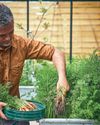
Kitchen Garden
TRIED, TESTED AND STAYING
With so many tempting varieties to choose from, it can be hard to know which vegetables truly earn their space. Rob Smith shares 10 standout crops he'll be growing again next season – reliable performers packed with flavour, colour and character
6 mins
December 2025
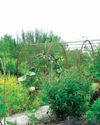
Kitchen Garden
THE ART of GROWING
Rachel Graham meets Chi Chi Tseng, head kitchen gardener at Sculpture by the Lakes near Dorchester, an internationally accredited botanic garden. She joined the team in 2022 and now manages the quarter-acre biodynamic kitchen garden, which supplies the on-site café and restaurant with seasonal fruit, vegetables, herbs and edible flowers
5 mins
December 2025

Kitchen Garden
SHAPING A SUSSEX CLASSIC
From cleaving chestnut poles by hand to fastening wafer-thin plywood, every Sussex trug at the Thomas Smith Trug Company is made with heritage and human touch. Rachel Graham meets Robin Tuppen to see how this humble, sustainable basket became a national treasure - and how a new heritage centre hopes to secure its future
5 mins
December 2025
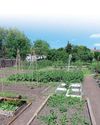
Kitchen Garden
DIGGING THE DIRT THE ALLOTMENT: WHAT'S THE POINT?
Growing your own offers a heady combination of tough challenges and sheer joy in the ongoing battle with nature. This month John Holloway is busy pondering the ongoing question: just why do we do it?
3 mins
December 2025
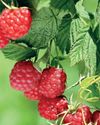
Kitchen Garden
THE RIGHT START WITH RASPBERRIES
There's nothing quite like the taste of home-grown raspberries. David Patch shows how to prepare the soil, plant new canes, and carry out the first pruning to set them up for a long, productive life
4 mins
December 2025
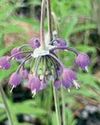
Kitchen Garden
HERB OF THE MONTH CHIVES
Allium schoenoprasum
1 mins
December 2025

Kitchen Garden
PUTTING OFF-GRID GREENHOUSE HEATERS TO TEST
As the days get colder keeping your precious plants warm within the greenhouse becomes more of a challenge. But what can you do if there's no power on your plot? Here KG takes a look at four heaters that could help to keep things growing through the winter days...
4 mins
December 2025

Kitchen Garden
FROM SEED TO SIZZLE
From fiery habaneros to fruity new hybrids chillis offer great possibilities. Becky Searle meets RHS Gold Medal winner Amrit Madhoo at South Devon Chilli Farm to hear about growing and caring for these heat-loving plants
4 mins
December 2025

Kitchen Garden
OUR TOP PLOTTERS
Last summer we launched a competition to find our Top Plotters, with the top three winning some great prizes and all being featured in Kitchen Garden magazine this year. Here we feature one of our runners-up...
7 mins
December 2025
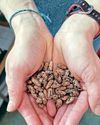
Kitchen Garden
MAKING THE RIGHT CHOICE ABOUT SEEDS
Dr Anton Rosenfeld, of sustainable gardening charity Garden Organic, shares some tips for choosing seeds this winter
4 mins
December 2025
Listen
Translate
Change font size

